25 essential inspirational movies
- Oops!Something went wrong.Please try again later.
- Oops!Something went wrong.Please try again later.
- Oops!Something went wrong.Please try again later.
What makes something "inspiring" can be hard to pin down. The word itself has many meanings — it can indicate something that challenges you, thrills you, creatively enthuses you, awes you, or something that pushes you to be better. And what inspires you can change day-to-day. One morning, it's a family's struggle to survive, the next it's a seemingly impossible feat of strength.
Although its nuances vary constantly, the word "inspiring" most typically refers to something's ability to make us feel hopeful or encouraged. Below are the films that give us hope and encouragement — and hopefully they'll do the same for you. Here, in chronological order, are EW's most essential inspirational movies.
<i>The Grapes of Wrath</i> (1940)
The Grapes of Wrath stars Henry Fonda as Tom Joad, a flawed but determined man seeking a better life for his family after losing their farm to the Great Depression. Based on the seminal novel by John Steinbeck, this John Ford film is the tale of their difficult, eye-opening trek West to what they believe will be a happier, more comfortable existence. Joad and his family are palpably and consistently disheartened with what they see and experience on their travels, and the hollow dismay of false promises looms, but they combat it with grit, resilience, and hope. The black-and-white film is visually impressive, and strikingly exemplifies one of life's timeless realities: the inevitability of loss and the hope that awaits us on the journey to fulfill our dreams.
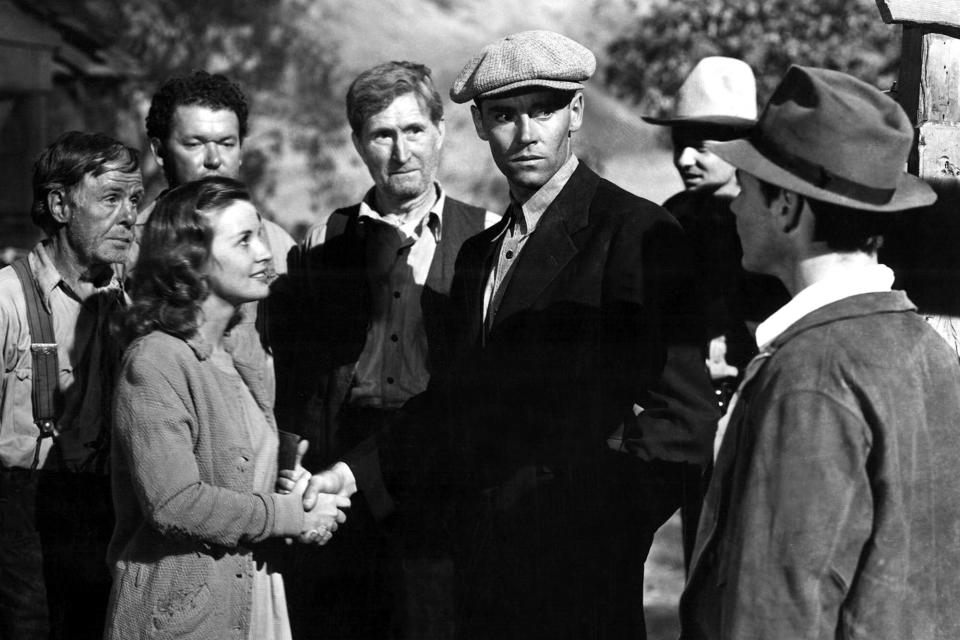
<i>It's a Wonderful Life</i> (1946)
In this Frank Capra classic, Jimmy Stewart plays overwhelmed and overburdened family man, George Bailey, who is resentful about all the dreams and opportunities that have passed him by over the years. He feels hopeless and pessimistic about his life, but at his lowest point, a guardian angel arrives to show him how awful life would be for the people he loves — and for his beloved town — had he never existed.
Bailey's presence made a world of positive difference for everyone he would come to meet, and upon learning that truth, his perspective drastically shifts toward gratitude… because sometimes all we need is to know that we're valued. You'll feel the warm and fuzzies aplenty with It's a Wonderful Life, which has been a holiday-season favorite for decades for its focus on faith, family, and belonging.
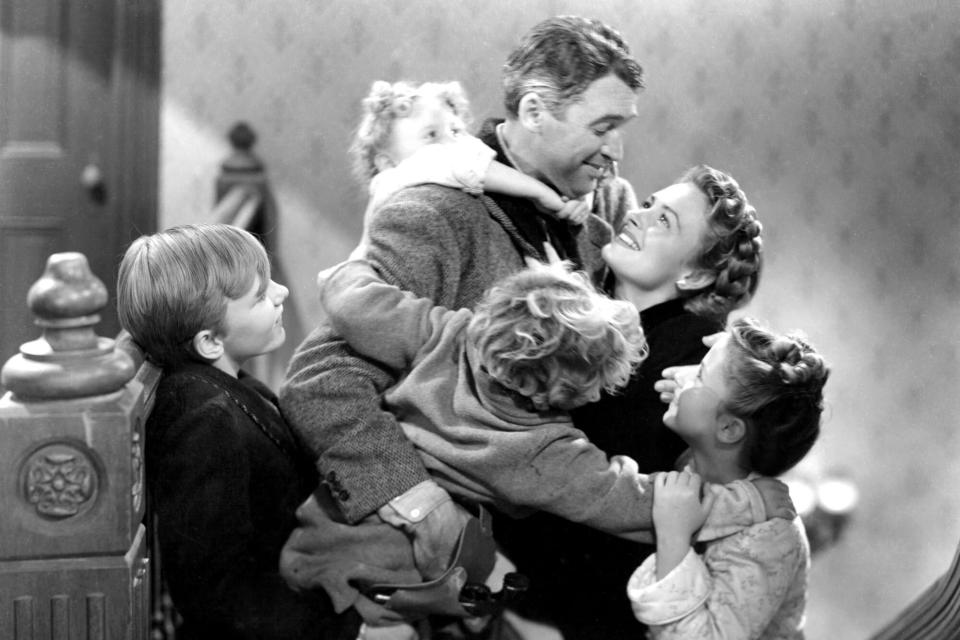
<i>High Noon</i> (1952)
A daring and hard-headed former marshal (Gary Cooper) grapples with bullies, murderers, and the ever-complicated concept of responsibility in Western drama High Noon. The marshal is preparing to leave his small New Mexico town in the dust, but when a criminal he turned in years ago is released from jail with a vengeance, the man of the law opts to stand his ground instead.
The story itself is simple — a clock tensely ticks down as the good guy attempts to rally the numbers (and the courage) to face the bad guys — but is told exquisitely by director Fred Zinnemann, who marries a high-strung plot with a man coming to terms with his morals. It serves as a reminder that even for the best of us, life isn't always as simple as right or wrong; most of our choices come from a stubborn, bittersweet conviction somewhere-in-between.
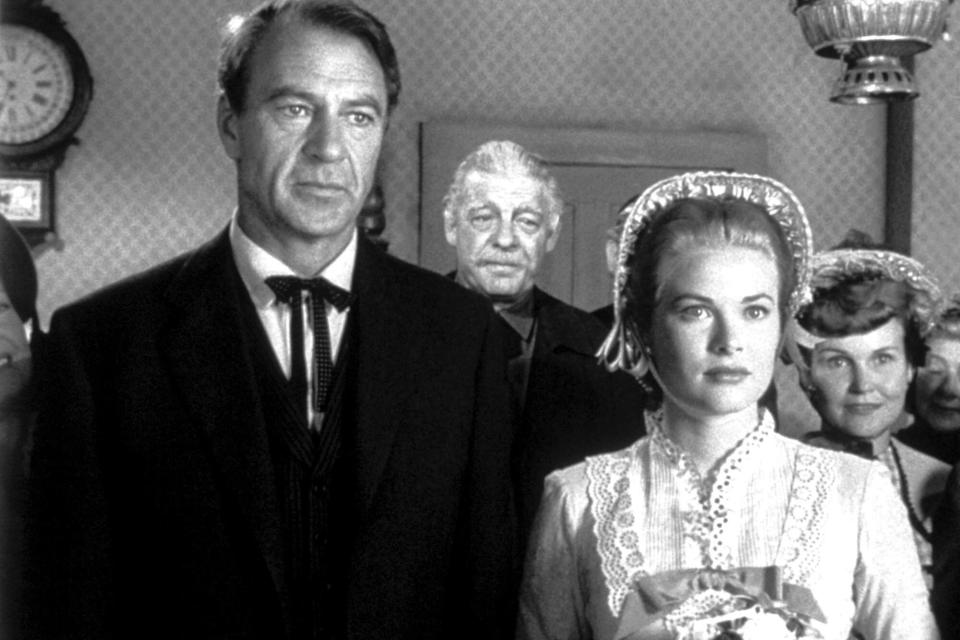
<i>To Kill A Mockingbird</i> (1962)
It might have been impossible for To Kill A Mockingbird to live up to the poignant, school-curriculum-staple novel it's based on, but this Robert Mulligan masterpiece rose to the challenge with grace. The blend of courtroom drama and coming-of-age story is rife with thematic messaging about racial injustice, gender roles, compassion, and loss of innocence.
Gregory Peck, who won the Academy Award for Best Actor in this role, compassionately represents the friction between lawyer Atticus Finch's Southern roots and his moral values as he defends a Black man accused of raping a white woman in 1930s Alabama. His performance, and the film as a whole, serve as a heartwarming — and heartbreaking — example of what it means to be a good attorney, a good father, and a good human.
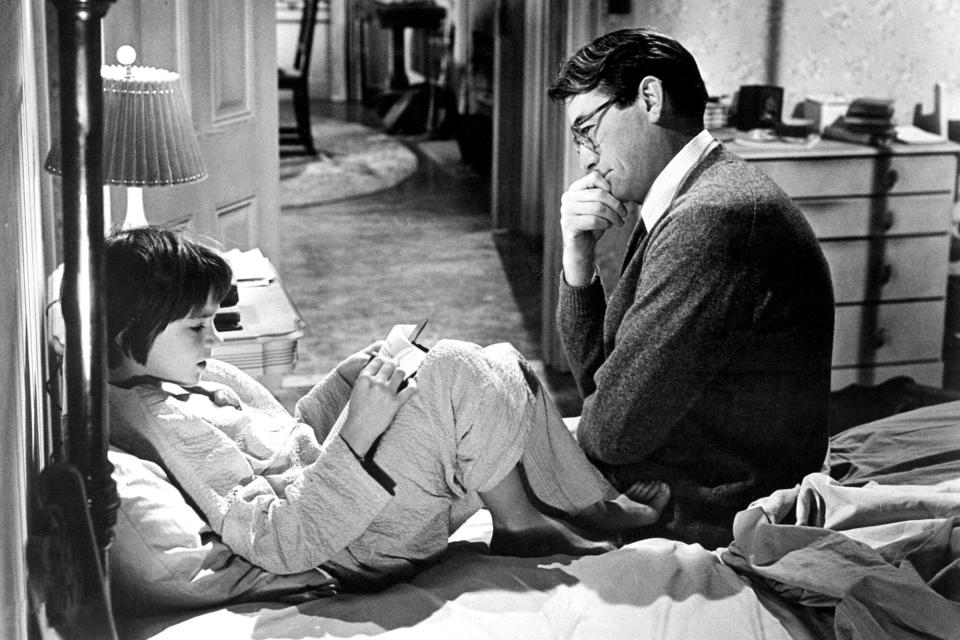
<i>Rocky</i> (1976)
Rocky is iconic not only for introducing the world to Sylvester Stallone as Rocky Balboa, but for being one of the original sports movies. Directed by John G. Avildsen and written by its breakout star, the 1976 film is a classic David-and-Goliath tale — a small-time boxer with big dreams gets thrown into the ring opposite the heavyweight champion of the world, Apollo Creed (Carl Weathers).
Rocky is timeless not only for its grit, but also for its heart, featuring legendary training montages and fight sequences as well as tender moments of romance and sportsmanship. It's also rife with crises of confidence; we see Rocky grapple with highs and lows in his own self-image as he learns how to trust his own talent. More than a run-of-the-mill sports story, Rocky is ultimately about a man who is taught to believe in himself on a journey that matters more than the destination.
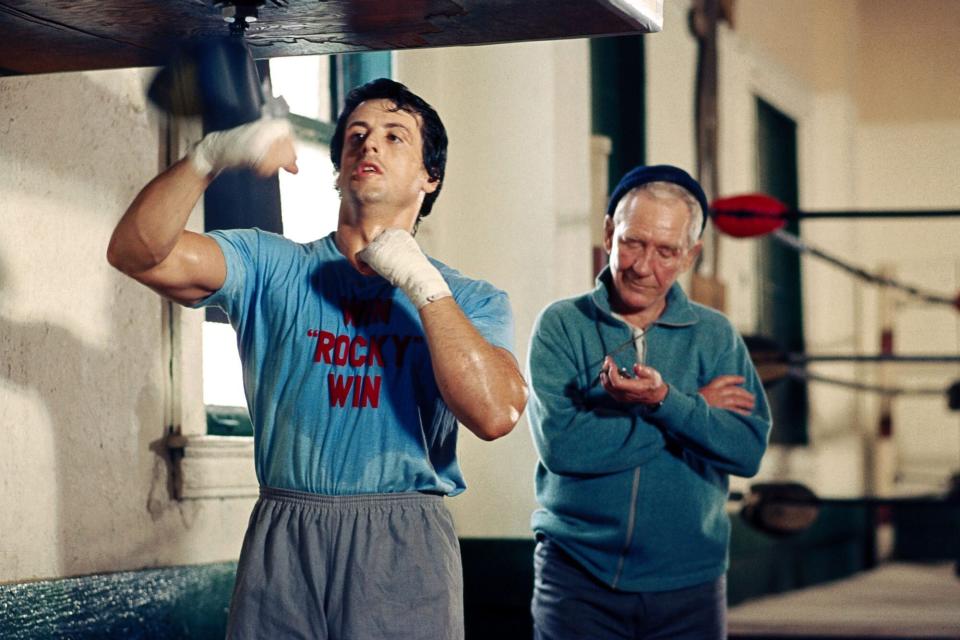
<i>The Color Purple</i> (1985)
An adaptation of Alice Walker's classic novel, The Color Purple spans 40 years in the challenging existence of a Southern Black woman named Celie. Through all the seasons of her life, she quietly and resolutely weathers abuse, prejudice, and unfair treatment, and ultimately survives these through the strength of her friendships.
Though Steven Spielberg, then known for action-fantasy flicks Jaws, E.T. and Indiana Jones, may have initially been considered a curious choice to direct, he still adapted an emotionally-unforgiving story with skill and grace. But the film's real tour-de-force is Whoopi Goldberg, who in her breakout role as Celie, touches audiences with a vulnerable and triumphant representation of a woman's enduring resilience in the face of trauma.
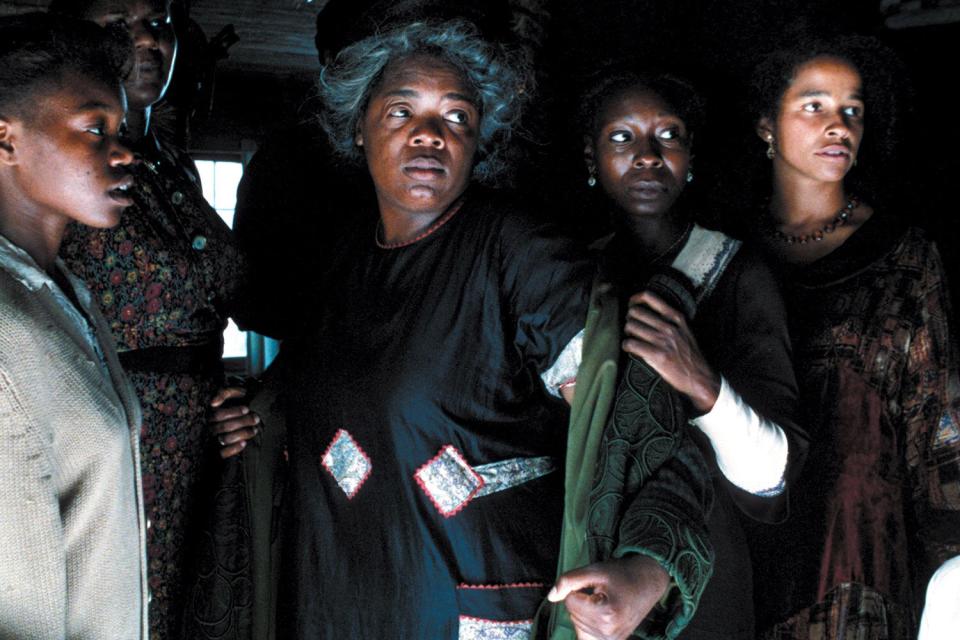
<i>Thelma & Louise</i> (1991)
We're certainly not supposed to emulate Geena Davis and Susan Sarandon's law-breaking personas in the ever-poignant Thelma & Louise, but we are enthusiastically encouraged to admire them. In this offbeat road-trip movie by Ridley Scott, Davis and Sarandon play friends who tear off into the desert after finding themselves entangled in a complicated crime. With law enforcement on their tail, the duo contends with fascinating characters (including a thoroughly rakish Brad Pitt), misogynistic biases, and their own impending fates. Saucily funny and tenderly heart-wrenching at once, it's an empathetic, bittersweet story about friendship, self-discovery, and love — for one another and for oneself.
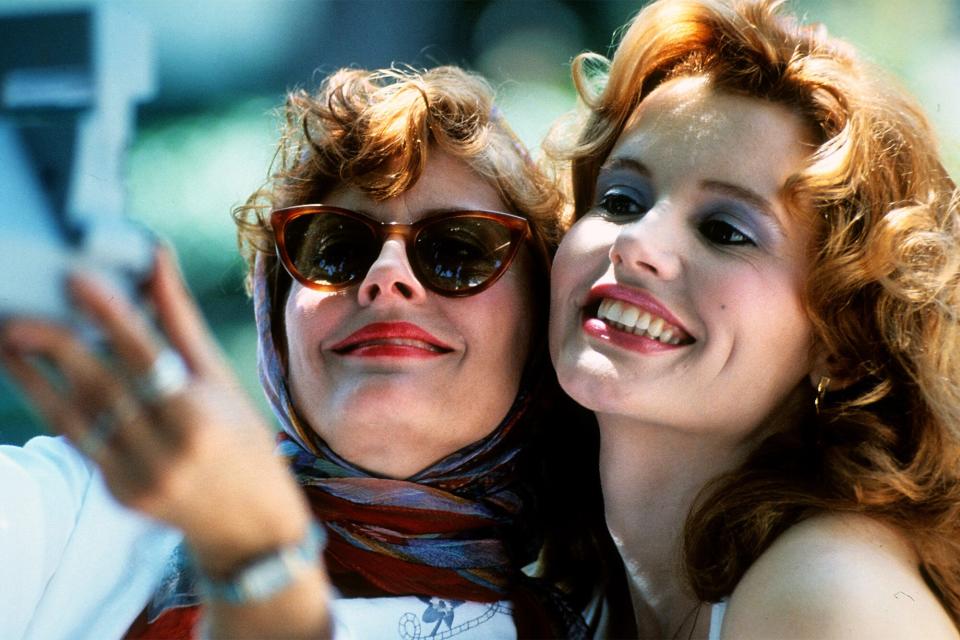
<i>A League of Their Own</i> (1992)
It was definitely an inspirational few years for Geena Davis, who after her turn in Thelma & Louise starred in this female-centric sports drama from Penny Marshall. Set primarily during World War II, A League of Their Own follows a ragtag female baseball team led by Davis and coached by an ever-endearing Tom Hanks. What distinguishes it from other sports films is its bittersweet tug-of-war between the societal expectations of women (marriage, family, supporting a husband) and the realities of their true potential (independence, ambition, athletic talent). It reminds us that sometimes women make the unexpected choice — and that it's the ability to choose that matters.
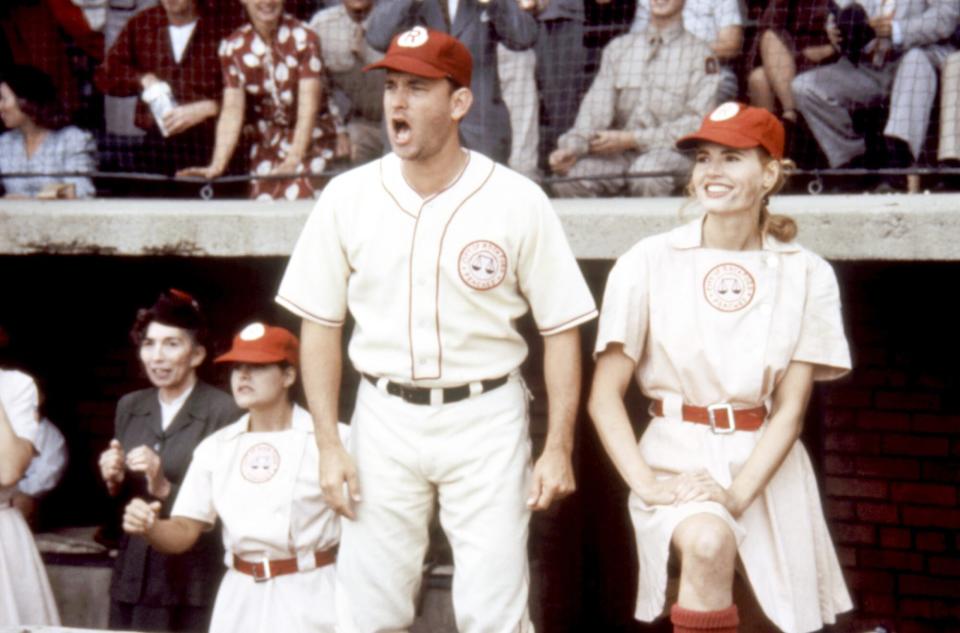
<i>Cool Runnings</i> (1993)
On the heels of Marshall's bittersweet, poetic A League of Their Own comes an entirely different brand of sports film. In Cool Runnings, a professional sprinter from Jamaica just misses the cut for the 1988 Summer Olympic qualifiers, thus setting his sights on the Winter Olympics instead. He throws together a motley crew of men as a makeshift bobsled team despite complete unfamiliarity with snow, ice, or anything remotely related to the sport.
Their ray of hope comes with convincing a reluctant former bobsled-medalist (a luminous John Candy in what would be one of his last films before his untimely passing) to train them, and obligatory hijinks, setbacks, and triumphs ensue. Loosely based on a true story, and with a proud focus on national pride, Jon Turteltaub's film is light, fun, and cheesy — but in the kind of way that just might make you choke up through your smile.
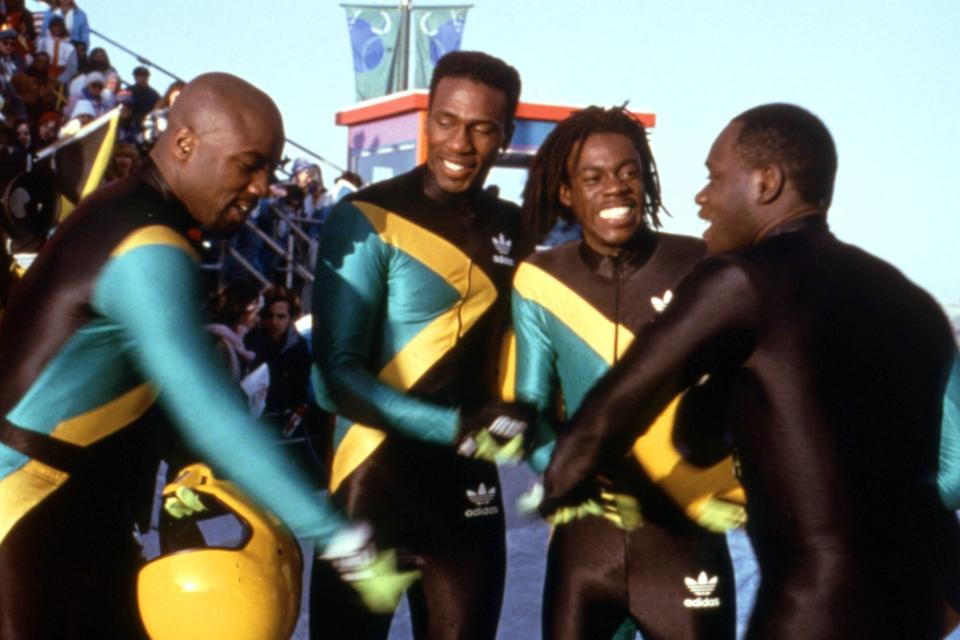
<i>Rudy</i> (1993)
A determined fish-out-of-water refuses to take no for an answer in Rudy, David Anspaugh's drama about a young man with a lofty dream and an impressive tenacity to pursue it. Daniel "Rudy" Ruettiger Jr. (Sean Astin) wants nothing more than to play football for the University of Notre Dame, but he doesn't have the grades for an academic scholarship or the stamina for an athletic scholarship — and his family certainly can't pony up the money for tuition.
Like all good underdog stories, it's sentimental and a bit formulaic, but that doesn't affect the genuine pride elicited from watching Rudy tackle (no pun intended) setback after setback. Astin's performance as Rudy is part of what makes the film so memorable; he's grounded and natural enough a performer that the plot's more predictable elements come off seeming fresh and unexpected. Every viewer can relate to elements of Rudy in some way or another — so much so that by the climactic, triumphant end, it'll be next to impossible to find a dry eye in the house.

<i>Forrest Gump</i> (1994)
Arguably one of the most obvious candidates for this list, Robert Zemeckis' Forrest Gump is the very definition of an inspirational film in more ways than one. Simpleminded Forrest Gump (Tom Hanks) is pitied for his low IQ by many of his town's denizens, but he has never considered himself lacking in any way.
With a good heart and almost-painfully earnest innocence, he lives an extraordinary — and borderline fantastical — life that overlaps with some of the most significant events of the 20th century, including college football stardom during the Civil Rights movement, earning a Medal of Honor in Vietnam, training as a world-famous ping-pong champion, and running across the country. But despite his many accomplishments, it's love that's at the center of Forrest's journey, and it's his affection for his mother (Sally Field) and his childhood love Jenny (Robin Wright) that propels him forward.
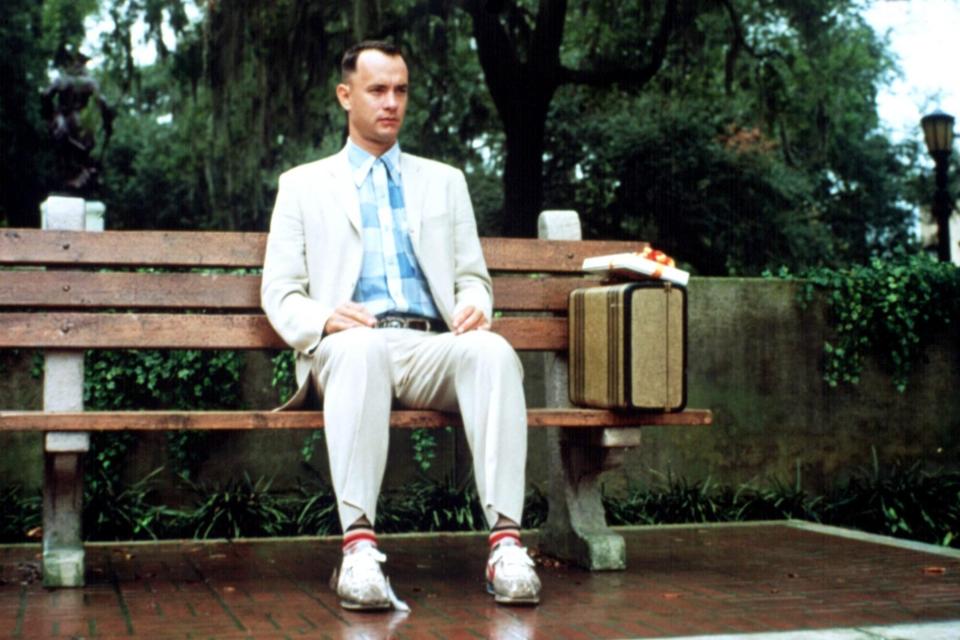
<i>October Sky</i> (1999)
October Sky follows a rural teenage boy named Homer Hickam (Jake Gyllenhaal) who decides his destiny is not to follow in his father's footsteps and become a miner, but instead to build homemade rockets in his backyard. Naturally, his father (Chris Cooper) disapproves of his son's ambitions, but a kind schoolteacher (Laura Dern) encourages his passion.
Homer's awe-inspiring engineering feats and his struggles to break free of his town's expectations are director Joe Johnston's main focuses. But the most interesting tension is Homer's struggle for his father's respect, proving that by breaking out of his shell, he is becoming exactly the kind of person his old man would be proud of.
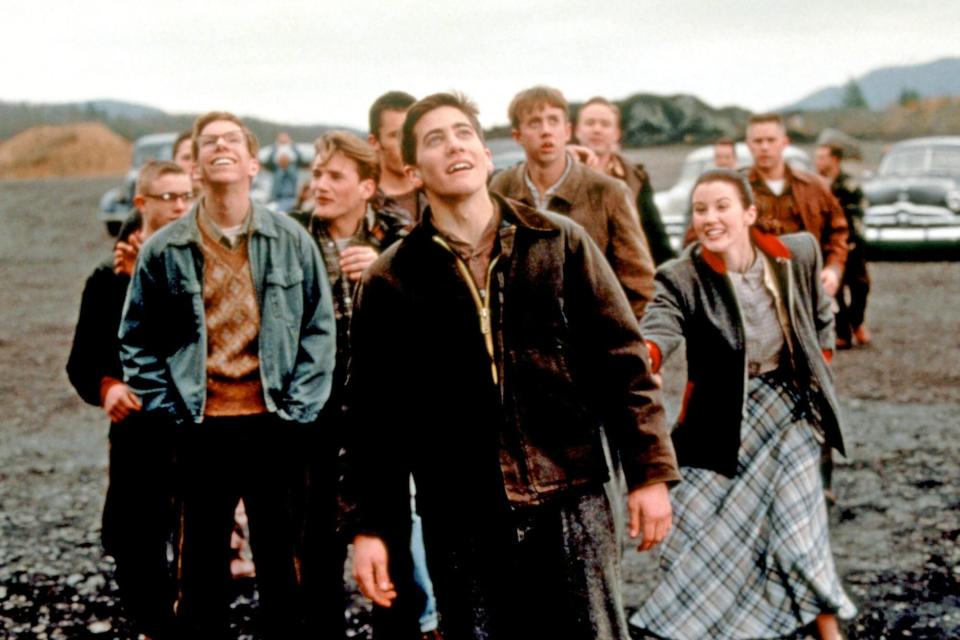
<i>Erin Brockovich</i> (2000)
Julia Roberts is a joy to watch in everything she does, and Erin Brockovich is no exception. As the title character, she is an unemployed single mother who begs Ed Masry (Albert Finney), the attorney she'd been working with following a car accident, to hire her for a secretarial position at his firm. When she stumbles upon a potential story, she convinces Ed to let her investigate, unearthing a massive criminal cover-up involving a power company and a mysterious illness in a local community. Though the story, which is based on Brokovich's real life, is fascinating on its own accord, Roberts is the true soul of Steven Soderbergh's movie, portraying Erin with equal parts warmth and tenacity.
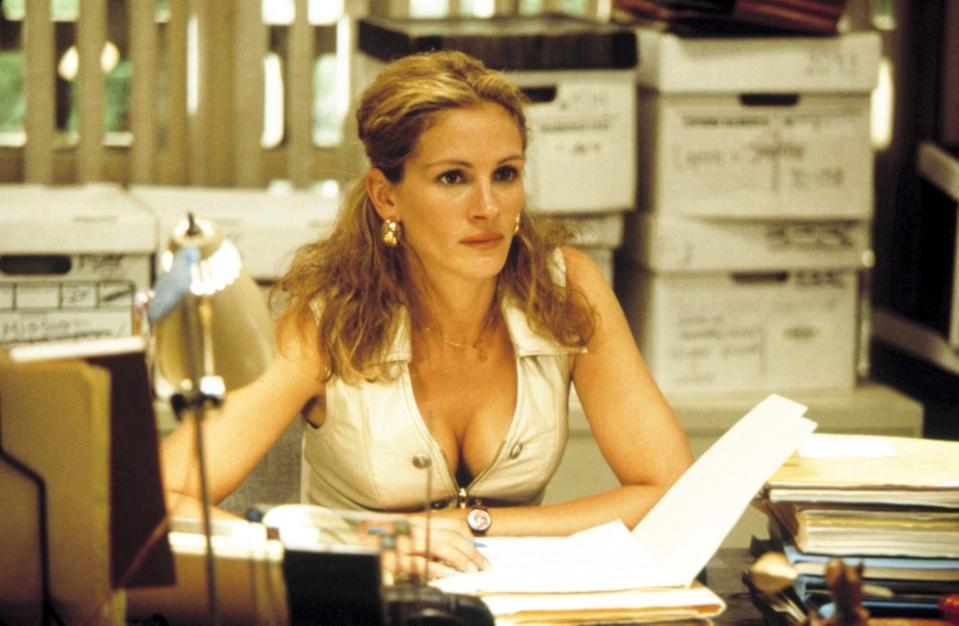
<i>Legally Blonde</i> (2001)
It's unlikely anyone knew at the time of its release just how much of a success Legally Blonde would become. This oft-quoted flick from Robert Luketic follows pink-clad sorority girl Elle Woods (Reese Witherspoon) as she applies (and gets accepted) to Harvard Law School — not because she wants to be a lawyer, but because she wants to prove her intelligence and ambition to her ex-boyfriend (Matthew Davis), who dumped her for not being "serious" enough.
Her genuine passion for law progresses as the film does, amidst iconic one-liners (what, like it's hard?) and richly saturated pinks contrasting with Cambridge's drab grayscale.. The film's message is obvious — don't judge a book by its cover — but it's told so endearingly by Witherspoon and the rest of the cast that it's a satisfying payoff nonetheless.
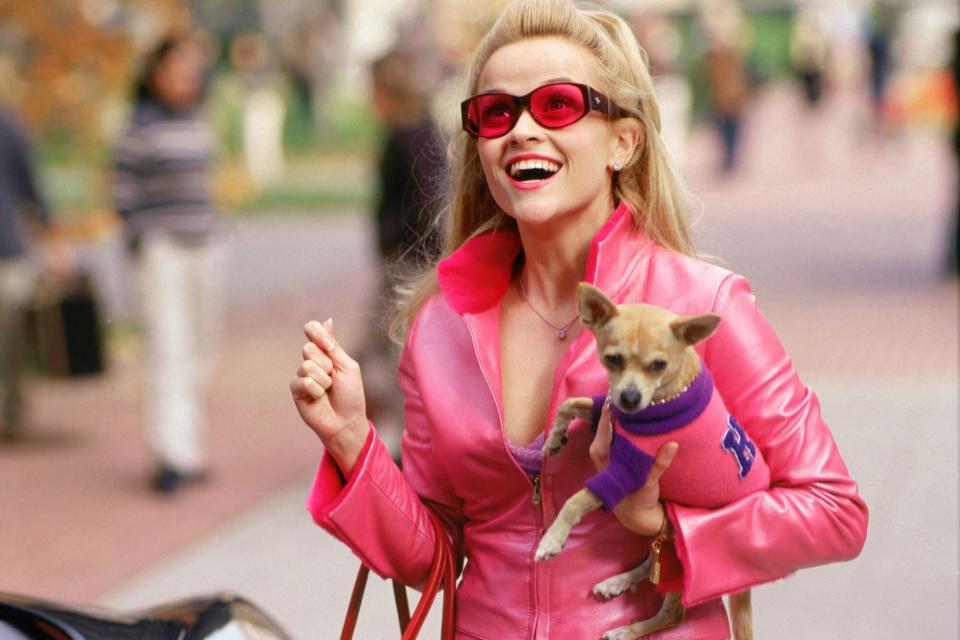
<i>Bend It Like Beckham</i> (2002)
This coming-of-age soccer movie (or rather football in England, where it's set) catapulted Keira Knightley to movie star status, but it's Bend It Like Beckham's cultural perspective and commentary that truly make it special. The story follows Jess Bhamra (Parminder Nagra), a teen girl obsessed with soccer (and with David Beckham, who gave the film permission to use his name because he wanted to promote girls' soccer).
Feeling suffocated by her strict Indian parents and their hope that she'll someday become a homemaker and devoted wife, Jess secretly joins a soccer team and must juggle responsibilities for both her family and her coach (Jonathan Rhys Myers). The film resonates with anyone who knows the acute angst of pretending, around those they love, to be someone they're not. The result is director Gurinder Chadha's supremely watchable sports film about gender, culture, sexuality, diversity, and love — and it's a touching one to boot.
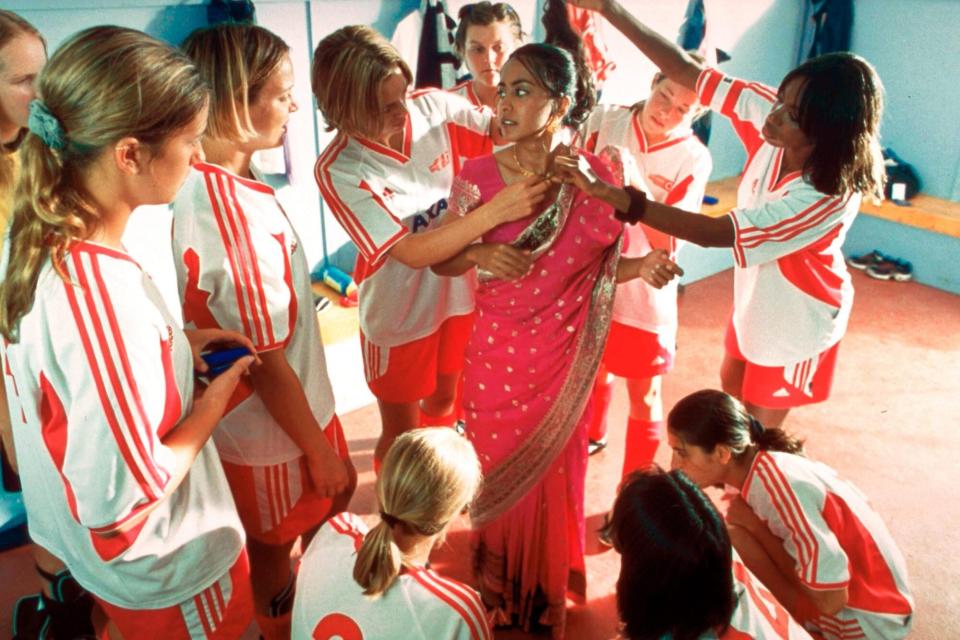
<i>Whale Rider</i> (2002)
Whale Rider was one of the early-2000s' most gorgeous films, both visually and sentimentally. Set in New Zealand, director Niki Caro tells the story of Pai, a young girl who desperately wants to prove that she is capable of anything and everything the boys are (played expertly by Keisha Castle-Hughes, who at 13 became one of the youngest Best Actress nominees ever).
Raised by her traditional grandparents, and next in line for chiefdom in her Māori village, Pai's grandfather is entirely opposed to the idea of her being in charge, reminding her frequently that she is "only" a girl. She spends the film aching for his approval and trying to prove him wrong, turning to the sea to prove her might. It's an unpredictable and awe-inspiring ride — and it's one of the most moving films on this list.
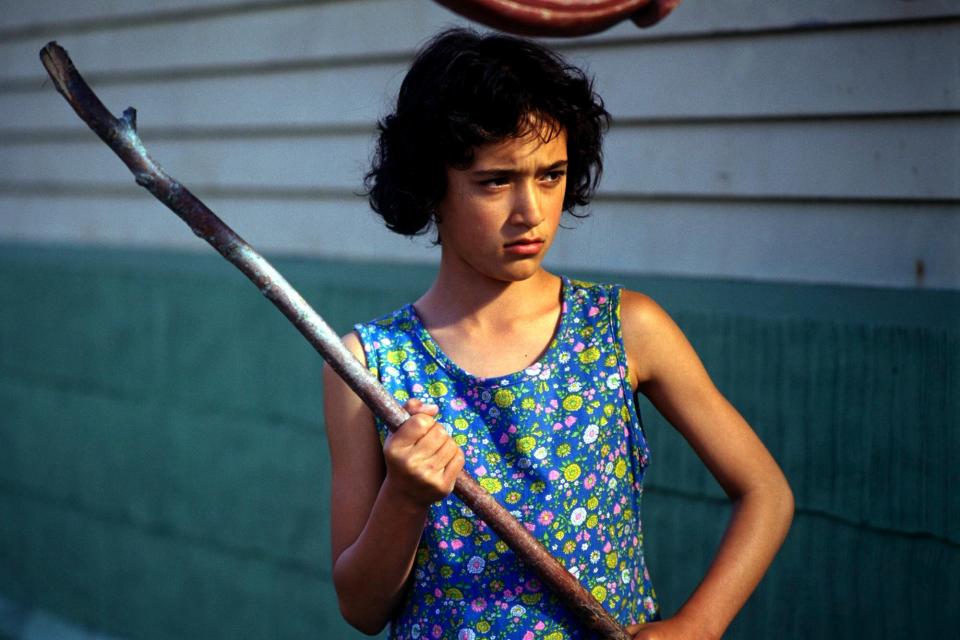
<i>Little Miss Sunshine</i> (2006)
Little Miss Sunshine, directed by Jonathan Dayton and Valerie Faris, gives new meaning to "dark comedy" with an excellent, Juno-esque script from Michael Arndt and an astounding ensemble cast — Greg Kinnear! Toni Collette! Steve Carell! Paul Dano! Alan Arkin! It follows the mostly-melancholy members of a dysfunctional family as they road trip across the United States to take nine-year-old Olive (an adorable Abigail Breslin, who was also Oscar-nominated) to compete in a beauty pageant.
Equally peppered with absurdly funny moments and genuine instances of rage and grief, the film doles out reckonings to each of its cynical adults and also to naive, optimistic Olive, who realizes only once she arrives at the competition that she may not, in fact, be the stereotypical definition of a beauty queen. The outpouring (and outrageous) support from her family that follows might inspire tears, but their rendition of Rick James' "Superfreak" is all smiles all the way.

<i>Milk</i> (2008)
Sean Penn is at his very best in Milk, a drama by Gus Van Sant about the true story of Harvey Milk, who in the 1970s became the first openly gay man to be elected to public office. At age 40, as a closeted researcher at a securities firm, Milk becomes dissatisfied with his life and decides to move to San Francisco with his lover. Distressed and angry about the systemic persecution of the homosexual population, Milk evolves into a fixture for gay rights in the city. He campaigns, he gives a speech, and is eventually elected into a seat on the Board of Supervisors — until a tragic turn of events changes everything. Penn portrays a deeply human man — kind, auspicious, flawed — whose impact on the LGBTQIA+ community can't be understated, and who serves as a reminder of the positive impact an everyday person can achieve.
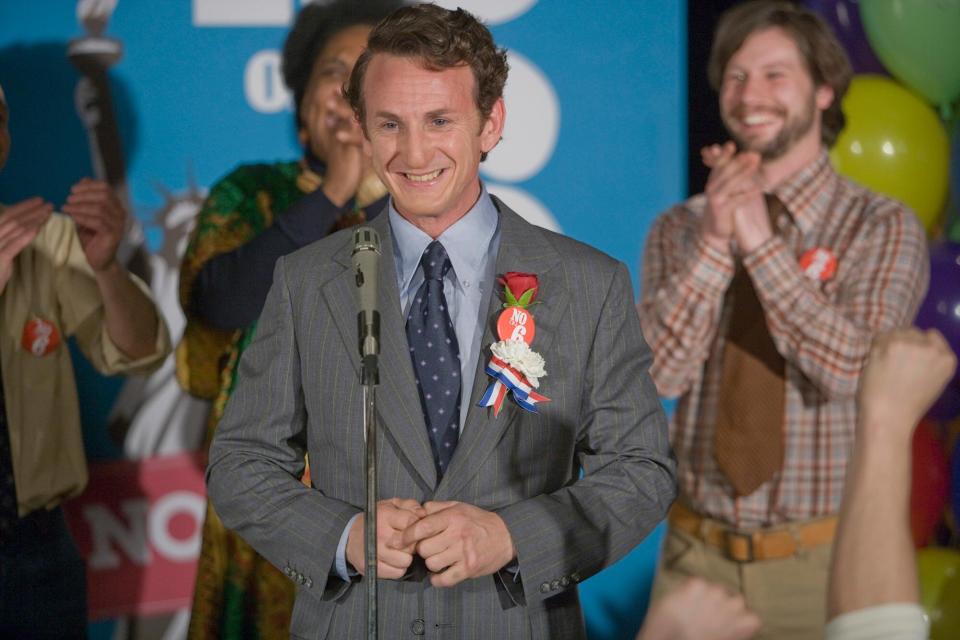
<i>The Intouchables</i> (2011)
The Intouchables, directed by Olivier Nakache and Éric Toledano, was the template for 2017's The Upside, but whether or not you've seen its buzzy successor, the original is well-worth a watch. Lupin's Omar Sy plays Driss, a thief out on parole who accidentally stumbles into a job as the caretaker for paralyzed Philippe (François Cluzet).
The two men couldn't be more dissimilar: Philippe is an older white man and Driss is a youthful black man, but beyond that, the two men come from vastly different economic backgrounds and have lived very different lives. Their outlooks, their opinions, and their priorities are completely misaligned…until they're not. Uproariously funny and gently vulnerable, with natural, multilayered performances from its leads, this French-language box office hit is as uplifting as they come.
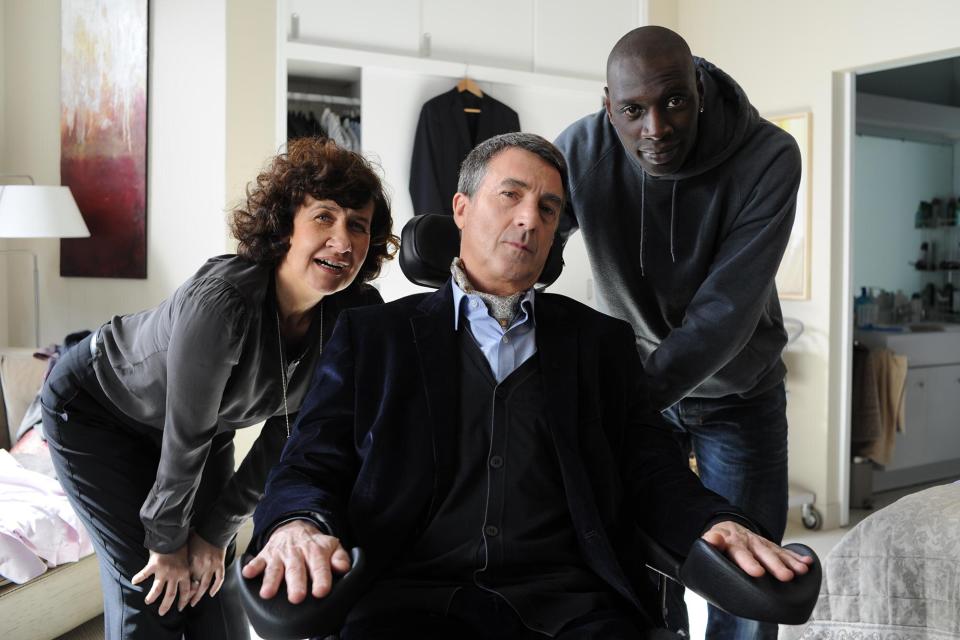
<i>Wild</i> (2014)
In Wild, a young woman named Cheryl Strayed spirals into self-destruction after the death of her mother, and decides — without any deep thought or former hiking experience — to trek the 1,000+ mile Pacific Crest Trail. There, she weathers wild animals, predatory men, and dwindling supplies as we see through flashbacks the moments of grief and trauma that led her to begin the journey.
What makes Wild — directed by the late Jean-Marc Vallée — special is that while it's based on a memoir, it's not a sweeping tale of redemption or success. Cheryl doesn't finish the film feeling healed or at peace; rather, she has undergone an extraordinary physical feat while having an emotional and spiritual reckoning with herself and her place in the world. The movie is beautiful in that it refuses, like our own lives sometimes do, to tie up all the loose ends neatly in a bow.
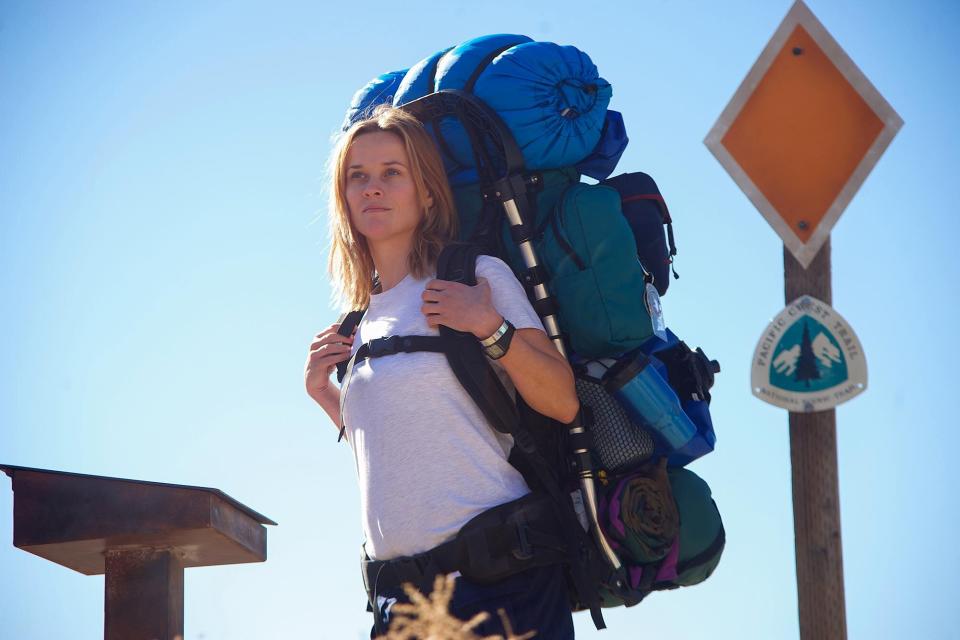
<i>Selma</i> (2014)
Selma is not quite inspiring in a feel-good way; it's inspiring in its call-to-action. Directed by Ava DuVernay, the film follows Martin Luther King Jr. (David Oyelowo) and his followers on their epic march from Selma to Montgomery protesting racial discrimination. Black people in the South were having a very difficult time registering to vote, despite the Civil Rights Act of 1964 implementing legal desegregation. So, in 1965, King took matters into his own hands.
While it chronicles events from nearly 60 years prior, DuVernay takes specific care to remind audiences that things are not so different now from how they were then. The film doesn't try to minimize the terror and the powerlessness of that time period for the comfort of its audiences, instead offering a poignant warning about history's tendency to repeat itself. Given that uneasy reminder, the small victory ultimately won by King and his followers is even more extraordinary and powerful to behold.
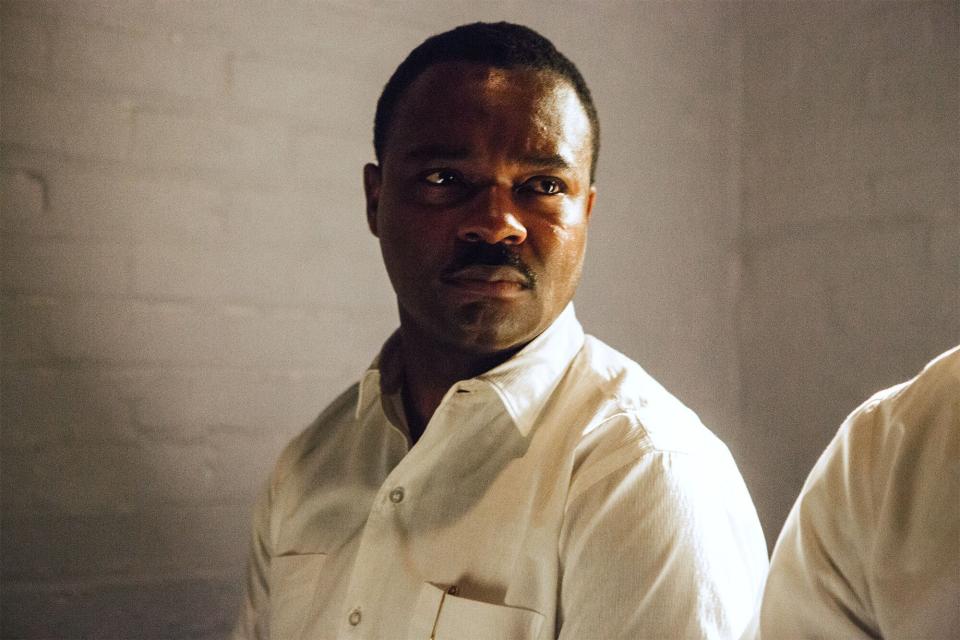
<i>Lion</i> (2016)
Stunning visuals and intense emotions are two of the many elements that characterize Garth Davis' Lion, which follows a disadvantaged five-year-old named Saroo (precious breakout star Sunny Pawar) who gets lost on his train in his native India, and 25 years later, now living in Australia, tries to find his way back home. The story throws young Saroo into incredible circumstance after incredible circumstance — so much so that it's almost hard to remember it's based on true events — until he ends up as Nicole Kidman and David Wenham's adoptive son.
As an adult, Saroo (Dev Patel) finds himself desperate to return to his birthplace, but has to delve deep into his memory to garner clues about where he spent his early childhood. The cast, with emotionally devastating performances, deftly manage themes like identity crisis and adoption, and the powerful resolution at the end (including footage of real-life Saroo) is one of the most satisfying payoffs of any film on this list.
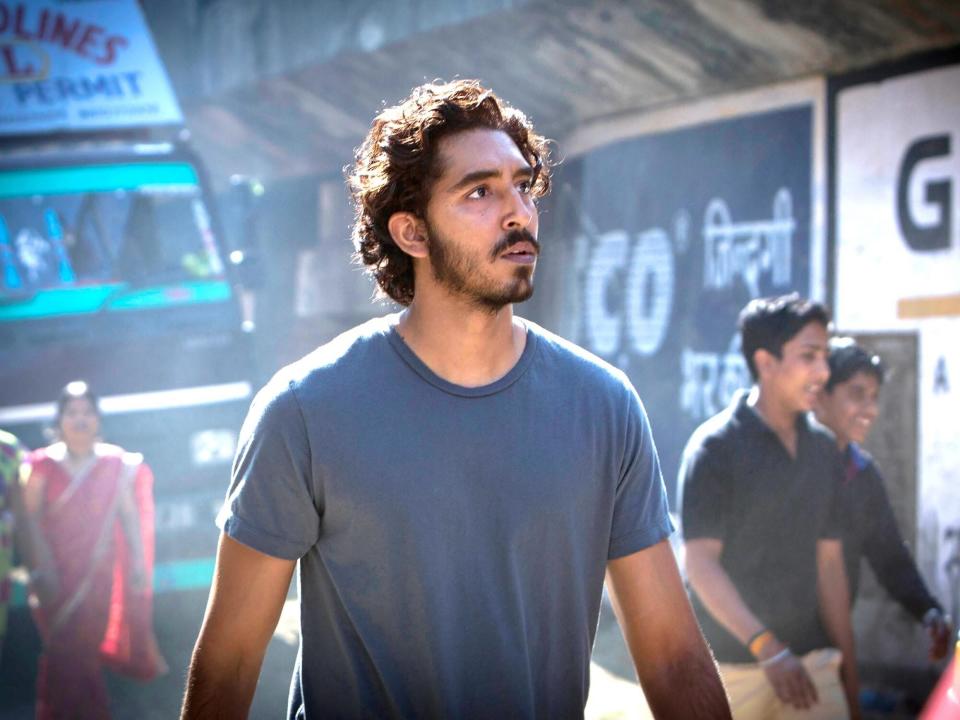
<i>Hidden Figures</i> (2016)
Hidden Figures is astonishing not just for the storytelling by its actors and director Theodore Melfi, but also for the true story at its core. It's about three Black women — Katherine Johnson, Dorothy Vaughan, and Mary Jackson — who are the NASA mathematicians behind John Glenn's launch into space in 1962. Amid skepticism, derision, sexism, and racism from all sides (NASA was notoriously a boys' club, and a very white one, at that) they keep their heads level and eyes up to the skies.
Heartfelt, convincing performances by Taraji P. Henson, Octavia Spencer, and Janelle Monáe give the film's audience an investment in their outcomes, both professionally and personally. Hidden Figures' inspirational intent is clear and strong, reminding us of the brilliance of Black women that history had otherwise overlooked.
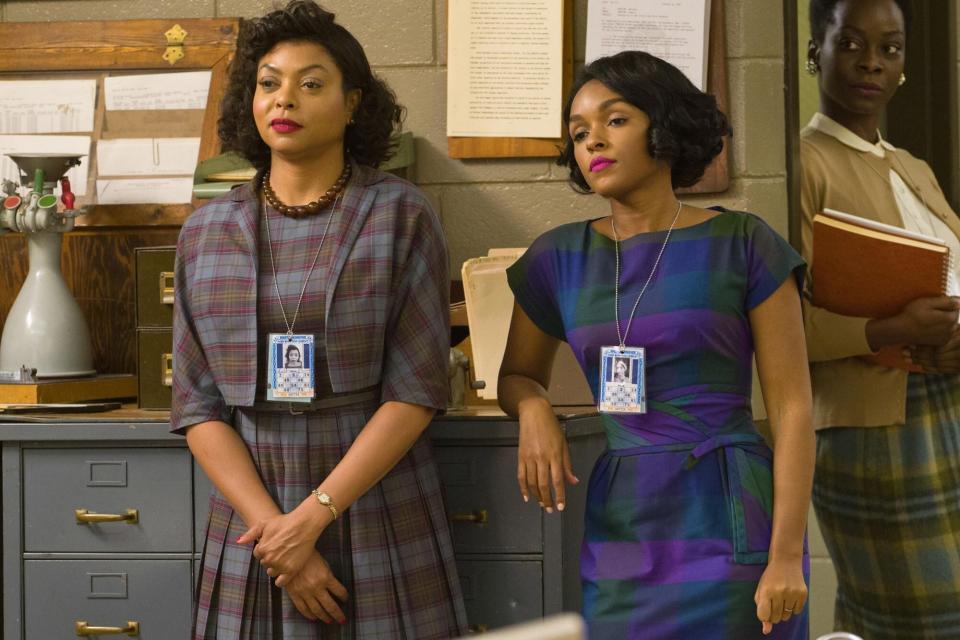
<i>CODA</i> (2021)
This 2022 Academy Award winner for Best Picture is one-of-a-kind. CODA's dialogue is delivered, for the most part, in American Sign Language (ASL), and three of its lead actors — Troy Kotsur, Marlee Matlin, and Daniel Durant — are deaf. The fourth, Emilia Jones, plays Ruby, (Durant's sister, and Kotsur and Matlin's daughter), the one hearing member of the Rossi family. She works mornings to help with the family fishing business, but finds her passion for singing when she joins her high school choir, leaving her torn between her family and her personal ambitions. It's a common coming-of-age theme, but what's uncommon is the unique perspective the film gives us.
This feel-good movie was an awards-season darling, and it's easy to see why: director Sian Heder works hard to tell a story that's rarely been told. Ruby's family can't hear her talent, at least not in the traditional way. But as Heder lets us watch her through their eyes, we realize it's entirely possible to "hear" without sound.
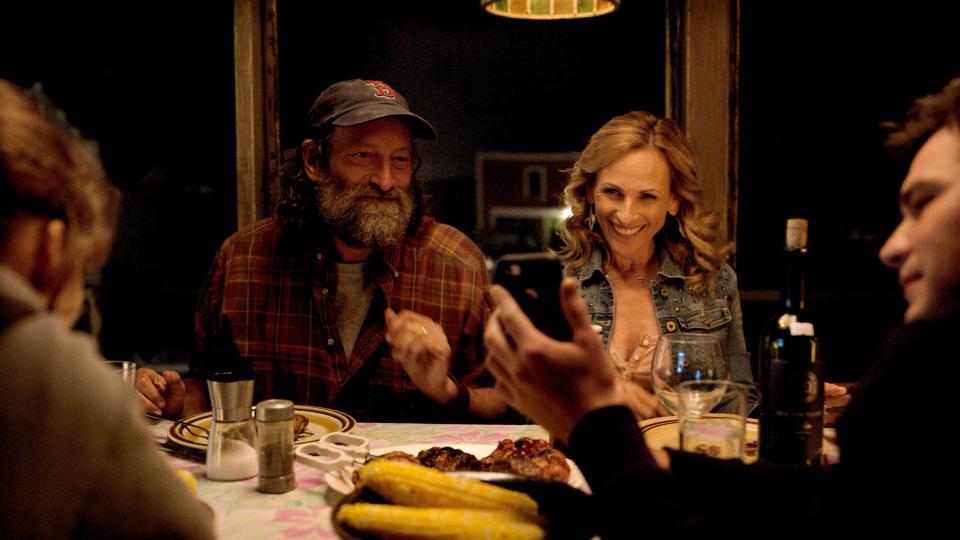
<i>Everything Everywhere All at Once</i> (2022)
Everything Everywhere All at Once, directed by Daniel Kwan and Daniel Scheinert, aka The Daniels, is a delight that needs to be seen to be believed. It begins fairly innocuously with a Chinese woman named Evelyn (Michelle Yeoh), who runs a Californian laundromat and is dealing with stressors galore, including her father's visit, her impending tax audit, the state of her marriage, and her daughter's sullen attitude. Her anxiety is palpable and disappoints her husband (Ke Huy Quan) and her daughter (Stephanie Hsu), who try and fail to get their needs met by Evelyn. Before long, there's a glitch in Evelyn's reality, an interdimensional rupture, wherein Evelyn encounters alternate versions of her family members who require a degree of heroism from her that she didn't think she had in herself.
The technical aspects here are astounding — from the editing to the mind-blowing action sequences and performances — but the film's emotional insistence on cherishing our lives and our loved ones is what will really strum your heartstrings. There is so much beautiful chaos in this movie that it necessitates more than one watch, and you might just be gaping the entire way through.
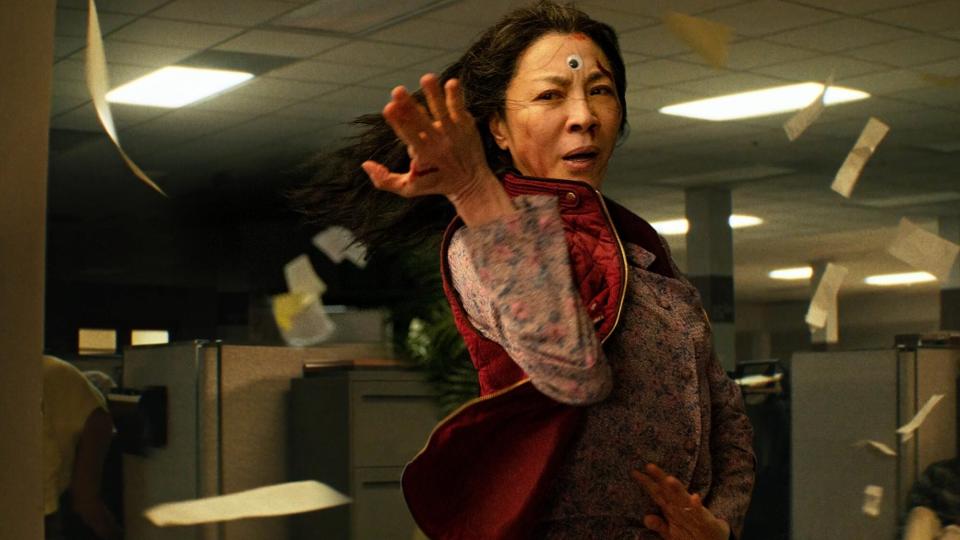
Related content:

